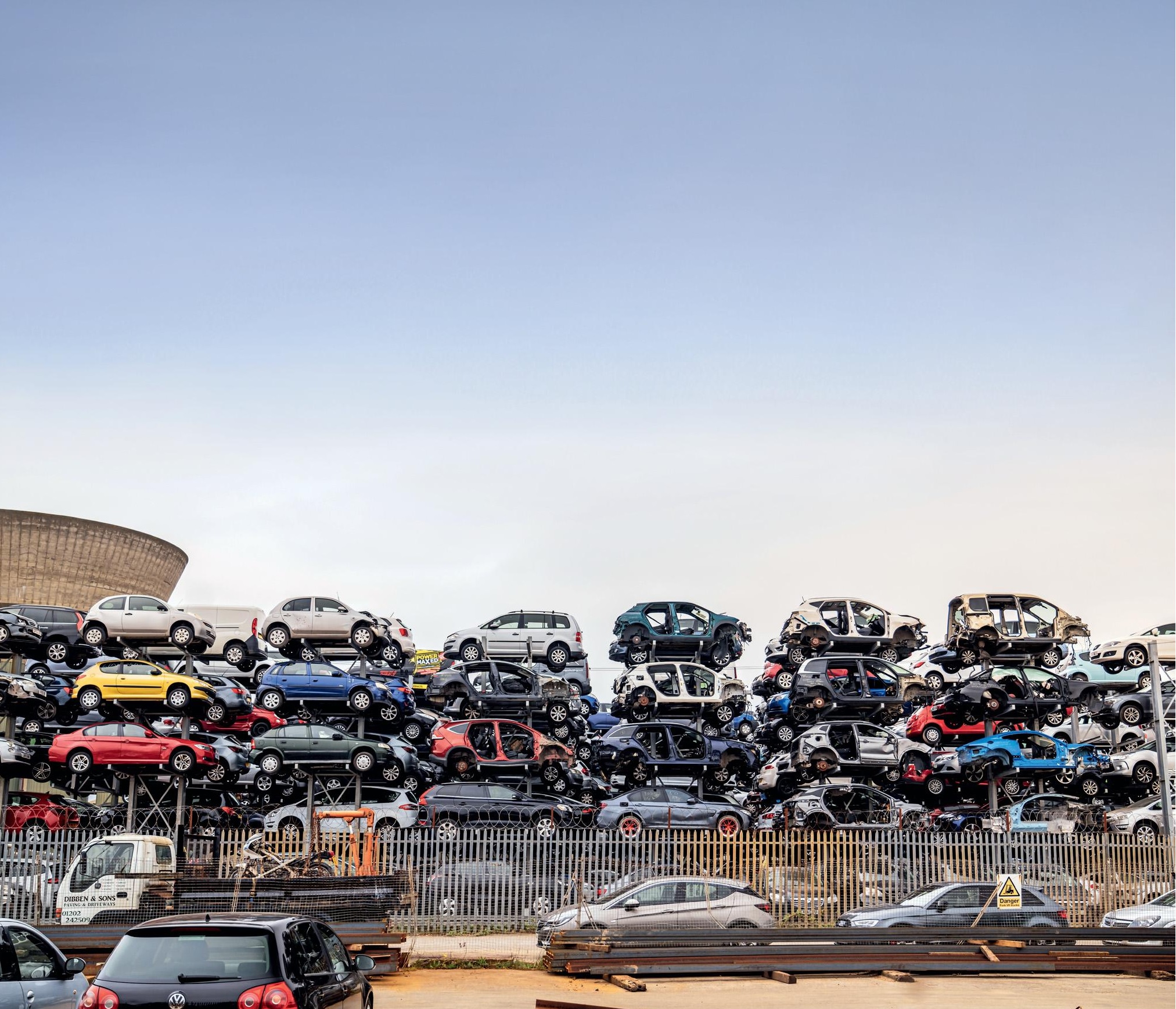
'Deproduction' sounds like a mis-spelling in a biology lesson, but it's what one vehicle salvaging company has started doing in Poole, Dorset.
Think of it as car production in reverse. Mounted on wheeled carriers, end-of-life cars travel along steel tracks, pausing at a series of four work stations where technicians dismantle them, placing their components in large hoppers. These are then wheeled to another area, where they're checked, catalogued, cleaned and photographed prior to being sold to bodyshops, garages and the public.
It's vehicle salvaging with a difference. Rather than mindlessly eviscerating old motors with hydraulic cutters and dropping the disembowelled carcasses into a crusher for bailing, the recycling approach taken by Charles Trent Ltd is methodical and surgical. There's still an old shell to dispose of, but even this is crushed by a machine powered by solar energy captured on the roof of the firm's warehouse.
Charles Trent isn't alone in treating end-of-life vehicles this way. Other firms, such as ASM Auto Recycling of Thame in Oxfordshire, carefully strip, catalogue and sell parts too. The differences are Charles Trent's strictly timed deproduction lines (a car is stripped in 15 minutes) and, at the end of them, the packaging area, where the checked parts are boxed up.
The idea isn't new. France's Indra was among the first to develop and adopt the approach, many years ago. However, Charles Trent is the only salvage firm to have implemented it in the UK.
هذه القصة مأخوذة من طبعة May 31, 2023 من Autocar UK.
ابدأ النسخة التجريبية المجانية من Magzter GOLD لمدة 7 أيام للوصول إلى آلاف القصص المتميزة المنسقة وأكثر من 9,000 مجلة وصحيفة.
بالفعل مشترك ? تسجيل الدخول
هذه القصة مأخوذة من طبعة May 31, 2023 من Autocar UK.
ابدأ النسخة التجريبية المجانية من Magzter GOLD لمدة 7 أيام للوصول إلى آلاف القصص المتميزة المنسقة وأكثر من 9,000 مجلة وصحيفة.
بالفعل مشترك? تسجيل الدخول

SKODA SUPERB ESTATE
Captain Sensible swaggers in after a rare five-star road test verdict

BMW iX5 TO SPEARHEAD BOLD NEW-MODEL BLITZ
EV taps into new-era tech and starts the final push to electrify every SUV

ALFA ROMEO JUNIOR IBRIDA
Electric baby crossover is followed by a 134bhp hybrid

AUDI S5
S4 gets a new name - and potentially a greater focus on driver rewards

BMW ALPINA B3
'Last of the last' offering marks the end for Alpina as we have known it

How to become an apex predator
How easy is it to drive a supercar quickly on track experience? We dispatch MURRAY SCULLION in an MC20 to see

TESLA MODEL Y RAISES ITS GAME FOR 2025
Facelift targets gains in efficiency, refinement and quality

FORD MUSTANG MACH-E RALLY
Dirt-road fun for a minimal extra outlay is the promise. Does it deliver?

MERCEDES-BENZ GLC 300DE
Does a plug-in hybrid make even more sense when it's diesel-engined?

SONY-HONDA AFEELA 1 EV ON SALE NEXT YEAR
Tech-rich 482bhp saloon has been revealed in near-production form